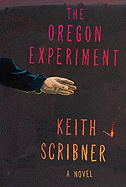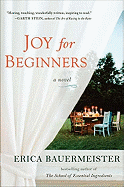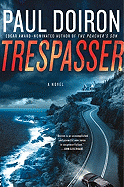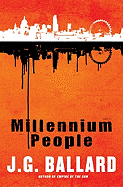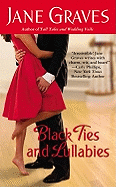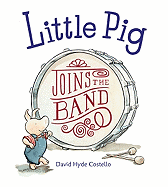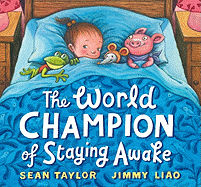Tuesday, July 12, 2011
A few weeks ago I was chatting with one of my book-critic friends, and I mentioned a novel that I'd loved. My friend said, ruefully, "That's one of my great misses this year, I'm afraid."
No thoughtful critic or reviewer can read everything that's published--that's obvious, given the sheer number of books released every week in the United States alone. But no single critic or reviewer can read everything published in his or her niche area, either. This is especially true if one wants to write something considered and thoughtful about books. You can only do that for a certain number in any given week, month or year.
That's because one of the factors left out of many discussions about books and reading in these uncertain times is that of, well, time itself. Unlike movies, television shows and music, books vary widely and wildly in how much time they take (even long TV series are chunked up into regular episodes, while some novels eschew chapter breaks altogether). A long book, regardless of genre, can take hours and hours to finish, and even longer to process.
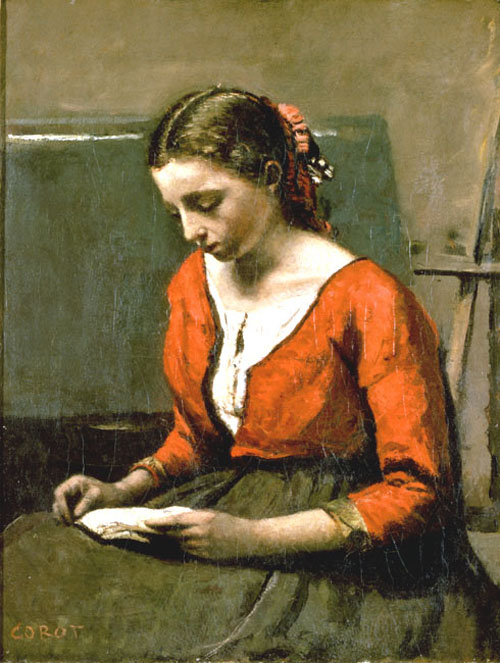 However, the slower pace of reading is also one of the reasons we love to pick up books. While turning pages of a memoir or a great thriller, we are in control of how long we linger over a chapter, scene or sentence. Those of us who try to capture what's best about books to share with other readers, whether we're Oprah or the newest book blogger, have to balance our own natural reading pace with being able to say something meaningful about any particular title.
However, the slower pace of reading is also one of the reasons we love to pick up books. While turning pages of a memoir or a great thriller, we are in control of how long we linger over a chapter, scene or sentence. Those of us who try to capture what's best about books to share with other readers, whether we're Oprah or the newest book blogger, have to balance our own natural reading pace with being able to say something meaningful about any particular title.
Small wonder my friend missed a good book. I miss lots of them as I sort and organize my book stacks each week, forced as I am to make choices because there isn't enough... time.
The Borrower
by Rebecca Makkai
Lucy is a children's librarian in her mid-20s in a small city in Missouri, starting to become frustrated with the direction her life has taken. Maybe that makes her a little more receptive to the problems of 10-year-old Ian Drake, one of her regular patrons. One of the first signs of trouble was when he brought back Theater Shoes because his mother lets him read only "boy books," but Lucy slips him classics like My Side of the Mountain and From the Mixed-Up Files of Mrs. Basil E. Frankweiler. Soon, though, Mrs. Drake arrives to advise that "what Ian really needs right now are books with the breath of God in them."
Ian's parents are sending him to a ministry that promises to cure boys of their homosexual tendencies, and one morning Lucy opens the library to find Ian there--he has run away from home. Before long, he's emotionally blackmailed her into a cross-country road trip.
Granted, this is not the most convincing turn of events, and Makkai's efforts to finesse the story and keep the police away don't always ring true. She does, however, carve out an entertaining space in which Lucy's confrontation with her own life illusions gradually overshadows any attempt to "solve" Ian's sexuality crisis. The argument is handled sensitively; it's clear that Ian doesn't fully understand what's going on and why he's miserable, so Lucy tries not to attack his Christian faith while subtly encouraging him to accept himself. That grounding, and the great love for children's books that pervades the novel's voice, are sure to give The Borrower an extra boost of endearment for many readers. --Ron Hogan, founder of Beatrice.com
Discover: A "dramedy" about life's illusions and finding one's true self, fumbling through difficult circumstances the best you can, leavened with a great love for children's books.
The Last Werewolf
by Glen Duncan
The modifier in this book's title points us to the most important part of Glen Duncan's remarkable novel. Jacob Marlowe, the werewolf in question, may struggle with accepting himself as a supernatural creature, but that won't matter much when he's gone--and his time left may not be limitless.
As the story begins, Jake (as he calls himself) hears that the penultimate werewolf has been killed, and he is wanted by the World Organization for the Control of Occult Phenomena (WOCOP), which polices supernatural creatures cohabiting with human beings. He goes on the run.
From the first paragraph, you'll be mesmerized by Jake, a combination of erudite academician and big horndog. Even later, when the action is wilder, his vital and original voice carries The Last Werewolf out of the supernatural-beasts genre and into the realm of literary fiction.
There's plenty of fun to be had, especially when Jake sniffs out Talulla Demetriou, a gorgeous creature (it couldn't happen with a female vampire; vamps smell disgusting to a wulf). As Marlowe tries to outwit the WOCOP agent who seeks vengeance (Marlowe killed his father), Jacob's wolfishness has down-and-dirty animal appeal. I do mean "dirty"; this is a book for grown-ups, preferably those who don't mind the darker sides of sensuality. Along with the naughty bits we also get plenty of literary allusions--everything from Chaucer and Shakespeare to Nabokov and Eliot.
Reading Jacob Marlowe never gets old because he literally doesn't. Duncan has sustained a young man's view of history not only through the years that Marlowe lives, but past them, into his volatile present. It's an authorial feat that works and will give many readers a smart, sexy, satisfying summer read. --Bethanne Patrick, editor, Shelf Awareness
For more on The Last Werewolf, check out our Maximum Shelf.
Discover: An adrenaline-pumping, intellect-bracing thriller about a werewolf whose status as the last of his kind proves less important than the cast of his mind.
The Oregon Experiment
by Keith Scribner
Scanlon Pratt, an East Coast history professor specializing in radical organizations and movements, finally lands a tenure-track position and moves west with his pregnant wife, Naomi. The bad news is that they land at a small college where the Forestry Department gets the newest building. The only house they can afford nearby is a small linoleum-floored ranch house in the town of Douglas, Ore., "where there are more people in the July Fourth parade than watching because every kid was riding his bike down Lewis and Clark Boulevard."
Naomi, a professional "nose" who has had a global career in the scent industry, misses New York: "She found herself waiting on street corners in downtown Douglas for a blast of hot fumes from a city bus." Her lucrative sense of smell has mysteriously left her, so she agrees to follow Scanlon in hopes that her nose will come back, her baby will be born in a pleasant town and, soon, they will go back east.
In his third novel, Scribner (Miracle Girl; The Good Life) expertly builds on this Pratt family tension as Scanlon and Naomi gradually become involved with local teen anarchist Clay, who is infatuated with Naomi, and secessionist Sequoia, who seduces Scanlon with her tempeh burgers, herbal tea and big heart. They all have troubled pasts that drive their presents and direct their futures.
In his detailed, nuanced world of both local radical bombings and Paul Bunyan contests, Scribner manages to create a contemporary story of the fiercely independent Northwest that nurtured the likes of Ken Kesey and his Pranksters and now threatens to destroy Scanlon and Naomi's precarious marriage. --Bruce Jacobs, founding partner, Watermark Books & Cafe, Wichita, Kan.
Discover: A rich and funny story of family tension and personal desire mixed with the idealism of radical political movements.
The Soldier's Wife
by Margaret Leroy
As the shadow of World War II creeps toward the Channel Islands, Vivienne de la Mare struggles to raise her two daughters and care for her aging mother-in-law while her husband is away at the front. Never quite at home on Guernsey and long unhappy in her marriage, she must put on a brave face, learning to make do with less and less as the occupying German forces claim the island's dwindling resources for themselves. She never expects to fall in love with one of the German soldiers living next door.
Seasoned author Leroy (Postcards from Berlin; Yes, My Darling Daughter) tells Vivienne's story in exquisite first-person prose, capturing the details of the changing seasons on Guernsey, the daily rhythms of life under the Occupation and the tender, fierce love of a mother for her daughters. Teenage Blanche, longing for independence, and little Millie, more perceptive than anyone knows, face the hardships of war bravely--sometimes more bravely than their mother. But when Millie uncovers a dark secret, Vivienne must decide whether she is willing to risk her family's safety for a stranger--and how much she really trusts the man she has come to love.
The Soldier's Wife might seem a misnomer--while Vivienne is married to a soldier, she must navigate the war as an independent woman. For the first time in her life, all her decisions fall on her own shoulders, and she and her daughters must decide whom to love, whom to trust and how to survive. But then you realize that Leroy is showing us that this independence, determination and, yes, solitude, is what it actually means to be "the soldier's wife." --Katie Noah Gibson, blogger at Cakes, Tea and Dreams
Discover: A hauntingly evocative story of life on Guernsey during World War II, fraught with family struggles and forbidden love.
Kindred Spirits
by Sarah Strohmeyer
One of the things that keeps long-term relationships interesting is that there are always new things to discover about the other person. The Ladies' Society for the Conservation of Martinis, which grew out of a PTA meeting postmortem, learns this after the death of one of its members. The friendship among Carol, Mary Kay, Beth and Lynne--the kind of connection that can feel deeper and more reliable than family--is shaken when Lynne suddenly leaves her friends behind, asking them to do two last favors for her. Although shocked by what those requests turn out to be, the other three women want to honor their friend's requests, and so set out on a road trip from Connecticut to Pennsylvania to fulfill their promises.
The trip is not only a source of revelations about Lynne's life before they knew her, but a time for the remaining members of the Society to discover each other's secrets as well, most of which are connected to things they've not yet shared with their husbands and partners.
Sarah Strohmeyer hits all the right women's-fiction notes in Kindred Spirits, but manages to avoid making readers feel like they've heard all of this before. The framing device she uses is, perhaps, a bit contrived, and some of the plot points are predictable, but her characters are convincing and the bonds between them feel true. Kindred Spirits is a novel about friends that readers will want to share with their own friends. --Florinda Pendley Vasquez, blogger at The 3 R'sBlog: Reading, 'Riting, andRandomness
Discover: An ideal summer read about friends, families and the untold things that hold them together.
Joy for Beginners
by Erica Bauermeister
Gathering to celebrate their friend Kate's triumph over cancer, six women each agree to take on a life challenge--chosen by Kate. In return, she agrees to go whitewater rafting with her daughter, though the idea has always terrified her. Bauermeister delves deeply into each woman's story, letting readers walk alongside Caroline, Daria, Sara, Hadley, Marion and Ava as they learn to bake bread, travel without their children, tend a long-overgrown garden and face the truths of their lives--empty nesting, broken marriages, a deep longing for home. Although Kate was the one fighting a deadly disease, her friends have their own demons to conquer--and each woman's test fits her perfectly, drawing out long-buried reserves of adventure, creativity, bravery and love.
The book brims with the evocative sensory details (and love of good food) that won readers over in Bauermeister's debut, The School of Essential Ingredients. Although each character appears in the first chapter, the author develops their stories slowly, with care, revealing details to illuminate how apt and yet how difficult each woman's challenge is for her. And when Kate finally gets her turn, the joy of the book's title is waiting for her, springing up as she plunges into an adventure both frightening and exhilarating.
Deeply moving and quietly insightful, Joy for Beginners will inspire readers to tackle their own challenges--and to celebrate the beauty of deep friendships, good food, well-tended gardens and other daily pleasures that make life worth living. --Katie Noah Gibson, blogger at Cakes, Tea and Dreams
Discover: A warm, insightful tale of seven women who each take on life challenges to celebrate a friend's triumph over cancer.
Mystery & Thriller
White Shotgun: An FBI Special Agent Ana Grey Novel
by April Smith
Fans of April Smith's Ana Grey series will find much to enjoy in this fourth novel to feature the FBI agent; the book also stands well on its own and won't leave readers new to Smith's work feeling lost. The intriguingly twisty story begins in London, where Grey is on leave with her brooding, complicated lover, Sterling, who performs covert missions for a shadowy outfit named Oryx. After getting caught in what appears to be a gang hit outside an Italian restaurant, Ana is immediately sent by the FBI to Siena, Italy, to meet Cecilia Nicosa, the half-sister Ana never knew she had. The FBI's not after a family reunion--they want Ana to investigate Cecilia's husband, Nicoli, a wealthy coffee mogul whose Mafia mistress has recently disappeared, the victim of a lupara bianca ("white shotgun") murder.
Things get even more complicated after Ana's arrival. Nicoli is deeply involved with the Mafia; Cecilia, a doctor who has just had a retaliatory affair with the corrupt chief of police, is paying pizzo (Mafia extortion) to keep her clinics open; and the couple's 16-year-old son, Giovanni, is savagely beaten and left to die. To further muddy the waters, Siena is about to host Il Palio, a horse race going back centuries that pits the various districts in the area against each other. Then Cecilia disappears.
Smith manages to tie abundant plot threads together without sacrificing pace or credulity, weaving in richly detailed descriptions of Italy's traditions, language, people, and landscapes. Smith also has a deft touch with her characters; even the minor players here have a measure of depth and dimension. --Debra Ginsberg, author
Discover: In the fourth novel to feature FBI special agent Ana Grey, April Smith's heroine discovers beauty, treachery and family in Siena, Italy.
Trespasser
by Paul Doiron
Trespasser is the second novel by Paul Doiron, following The Poacher's Son, and the story from the first book echoes throughout the pages of Trespasser. Game warden Mike Bowditch stumbles upon a long-unsolved sex-crime murder by way of a new killing with the same modus operandi. Bowditch is still reeling from the revelations in the first novel, second-guessing his own motives and actions as much as his superior officers and teacher girlfriend (who has just moved back in with him) do. He walks into dangerous situations again and again, stubbornly searching for the truth behind the latest murder, at the same time trying to get his personal and professional lives back on track.
Trespasser is as much about place as it is about plot, set as it is against the early spring of backwoods Maine with cold air, unpredictable weather, alternately frozen and thawing rutted mud. The story lives within a specific locale, one that held this skeptical reader's interest through some of the more clichéd scenes and heavy-handed inner and outer dialogue. Along with the author's confident attention to the quirks of the supporting characters, these atmospheric details bring the story to life with a realism not often found in other books written in this style.
That's not to say that the plot has not been done before. While the skeleton outline will seem familiar to anyone who has read a contemporary murder mystery, the uniquely northeastern side characters and clever plot twists within the final third of the novel are sure to please even a more cynical connoisseur of the genre. While I dislike the term "page-turner," this book kept me interested enough to do just that. --Rob LeFebvre, freelance writer and editor
Discover: A strong second novel with an atmospheric Maine setting and a clever-enough murder thriller plot to keep the pages turning.
Science Fiction & Fantasy
Millennium People
by J.G. Ballard
The psychopathology of late-20th-century everyday life was a recurring theme for J.G. Ballard, and Millennium People (first published in the U.K. in 2003) covers familiar territory for the late science fiction writer's fans. Psychologist David Markham is stunned to see his ex-wife in television footage of a bomb explosion at a Heathrow baggage claim. He doesn't want to know merely who set off the bomb, he wants to find out why they did it--so he begins attending protest rallies, looking for signs of violent extremism.
Markham falls in with film professor Kay Churchill, who has the right revolutionary mindset to have been involved in the Heathrow bombing, and she's tied to personalities like Richard Gould, a disgraced pediatrician who preaches a philosophy that casts the middle classes as "the new proletariat," oppressed not just by the capitalist economy but by its cultural conventions. Soon Markham is helping Kay torch the National Film Center, and getting pulled into even more insidious schemes.
Ballard presses his themes hard: there's a lot of talk about how "the middle classes are meant to be the great social anchor, all that duty and responsibility," and how cataclysmic it would be if they decided en masse to stop conforming to society's norms. Markham's journey into the terrorist subculture has strong echoes of Ballard's two immediately previous novels, Cocaine Nights and Super-Cannes, which also use the narrative structure of an outsider who discovers the sinister underbelly of a seemingly ideal, prosperous community. All of this is drawn out in Ballard's distinctively clinical tone, providing an aura of seriousness as Markham's world wavers between anarchy and nihilism, then finally comes to a seemingly safe--but subtly disturbed--resting position. --Ron Hogan, founder of Beatrice.com
Discover: The first of two Ballard novels that Norton is publishing posthumously for American readers; the second, Kingdom Come, is scheduled for May 2012.
Romance
Black Ties and Lullabies
by Jane Graves
Playboy Jeremy Bridges lives the high life, running a multimillion-dollar company and entertaining a variety of beautiful women. Jeremy loves living on his own terms, and nothing his sarcastic bodyguard Bernadette has to say about his lifestyle or taste in women will change his mind.
Bernadette Hogan isn't Jeremy's type. Instead of beautiful and brainless, Bernie is tough, smart and irritated by his refusal to take her seriously. Their combative working relationship snowballs into a boiling-hot one-night stand, but leaves Bernie intent on walking out on Jeremy forever. However, her plan is derailed when she finds out she's having Jeremy's baby and that he plans on being the involved father he never had.
RITA Award finalist Jane Graves (Tall Tales and Wedding Veils) pens a clever tale of breaking boundaries and finding love. The repartee between strong, compassionate Bernie and emotionally unavailable Jeremy sparks and sparkles. He struggles to convince her she needs his help, while she shows him the joy of helping those in need. Bernie is at once admirable and intensely relatable as she stands up to overwhelming responsibility, eventually learning that accepting help is an act of trust, not weakness.
Jeremy starts out as a shallow playboy, but as he learns how amazing Bernie is, he goes from controlling to supportive. Watching her school him in the art of kindness is both touching and hilarious as she befuddles and beguiles him into realizing his potential as a man, a mate and the father her child deserves. --Jaclyn Fulwood, graduate assistant, University of Oklahoma Libraries
Discover: A crackling tale of conflict-turned-love between accidental parents.
Children's & Young Adult
Little Pig Joins the Band
by David Hyde Costello
The youngest child in the family often feels like a tag-a-long, and that the older brothers and sisters get to do the fun stuff. Jacob is the youngest of five children. Everyone calls him Little Pig. When Jacob and his siblings visit their Grandpa, they pull out an assortment of his old marching band instruments. "Little Pig looked for something he could play," but he discovers that he is too small to hold the drum, so his big sister Margie takes possession of it. He is also too little to hold an elongated trombone, an enormous brass tuba or even a trumpet.
Costello's clean line ink and watercolor illustrations express with quiet humor the youngest child's dismay at being "too little to join the band." Little Pig's remarks appear in a different smaller typeface, indicating that no one else hears him. When he asks, "Do we have any piccolos?," for instance, Margie answers, "There's a jar in the fridge, behind the olives." Little Pig's big brothers and sisters play the instruments, but they do so in a disorganized, discordant manner, and topple over each other because they're not paying attention. Little Pig discovers he can contribute: he can lead the band. Music teachers may quibble that children would not instantly be competent music makers, but we can suspend disbelief for this quiet tale of the littlest pig finding his niche in a family venture. --Lisa Von Drasek, librarian at Bank Street College of Education's School for Children
Discover: An uplifting tale with a gentle lesson about how even the smallest member of the band has something to contribute.
The World Champion of Staying Awake
by Sean Taylor, illus. by Jimmy Liao
Consider this book the antidote to Go the F**k to Sleep. After Dad says, "Good night, Stella... Time to go to bed," he disappears from the scene. It's up to Stella, with her patient demeanor and boundless imagination, to get Cherry Pig, Thunderbolt the mouse puppet and Beanbag Frog to sleep. She closes the book she's been reading to them, and points the way to their room. While Cherry Pig and Thunderbolt tell Stella how wide awake they are, Beanbag Frog shows her with his "hoppety-hop" down the hall. "Stoppety-stop!" says Stella. "It's time to go to sleep."
Sean Taylor (A Monster Is Born) uses gentle rhyme and a bravado refrain to engage young readers in this nighttime tale. Each of Stella's companions proclaims he or she is "the world champion of staying awake!" but Stella gamely meets the challenge. Jimmy Liao's (The Monster Who Ate Darkness) impeccably paced illustrations toggle realistic scenes with the fantasy action. In a series of vignettes, the heroine proclaims her pillow a ship for her three passengers. A double-page ocean scene follows, teeming with jellyfish and seahorses: "The pillow ship rocks./ The pillow ship sways." The cruise does the trick for Cherry Pig, but Stella's work continues until the other two fall asleep (with the aid of a shoebox train and a basket balloon). When everyone's sleeping ("Not a croak. Not a bounce. Not a hoppety-hop"), an exhausted Stella joins them. Within a crowded field of bedtime books, this one stands out for the heroine's independence and imagination as she navigates her companions to sleep. --Jennifer M. Brown, children's editor, Shelf Awareness
Discover: A top-notch bedtime tale of a resourceful girl guiding her three stuffed playmates to sleep.
| Advertisement nuremberg--only in theaters november 7 |





